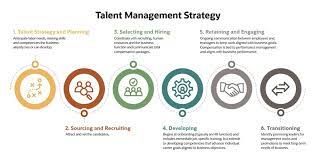The travel industry stands at the forefront of technological innovation, shaping the way we explore the world. From the planning phase to the actual journey, technology is revolutionizing every aspect of travel. This article explores the ways in which technology is transforming the future of travel, offering enhanced experiences and redefining the possibilities for adventurers worldwide.
**1. Smart Planning with AI and Big Data
The journey begins with smart planning, and artificial intelligence (AI) and big data are playing pivotal roles. Travel platforms leverage AI algorithms to analyze user preferences, providing personalized recommendations for destinations, accommodations, and activities. Big data enables a deeper understanding of travel trends, helping businesses tailor their offerings to meet evolving consumer demands.
**2. Augmented Reality (AR) for Enhanced Exploration
Augmented Reality (AR) is enhancing the way travelers explore new destinations. AR apps overlay digital information onto the real world, offering interactive maps, historical insights, and virtual guides. Tourists can use AR to unlock hidden stories behind landmarks or navigate unfamiliar cities with real-time information, adding a layer of immersion to the travel experience.
**3. Contactless Travel Experiences
The global shift towards contactless experiences has accelerated, with technology enabling seamless and secure transactions. From contactless check-ins at hotels to touchless payments for transportation and dining, travelers can navigate their journeys with minimal physical contact. Mobile apps and digital wallets streamline transactions, prioritizing safety and efficiency.
**4. Smart Luggage and Tracking Systems
Tech-infused luggage is simplifying the travel experience. Smart suitcases equipped with GPS tracking, digital locks, and built-in chargers offer convenience and security. Travelers can monitor the location of their luggage in real-time, reducing the stress associated with lost or delayed belongings. These innovations provide a tech-savvy solution to enhance peace of mind during travel.
**5. Blockchain for Secure Transactions and ID Verification
Blockchain technology is making inroads in travel for secure transactions and identity verification. Smart contracts on blockchain platforms streamline booking processes, ensuring transparency and reducing the risk of fraud. Additionally, blockchain can enhance the security of personal information, offering a decentralized and tamper-resistant solution for identity verification at borders and checkpoints.
**6. Internet of Things (IoT) in Smart Hotels
The Internet of Things (IoT) is transforming the hospitality sector, leading to the rise of smart hotels. IoT-enabled devices in hotel rooms allow guests to control room temperature, lighting, and entertainment systems through their smartphones. Connected sensors optimize energy efficiency, and IoT applications enhance the overall guest experience, paving the way for more sustainable and personalized stays.
**7. Virtual Reality (VR) Travel Experiences
Virtual Reality (VR) is redefining travel experiences by offering virtual tours and simulations. Travelers can explore destinations from the comfort of their homes, preview accommodations, and even “experience” activities before making reservations. VR technology expands access to travel content, allowing users to make more informed decisions and fostering a sense of anticipation.
**8. Artificial Intelligence in Customer Service
Artificial Intelligence is enhancing customer service in the travel industry. Chatbots and virtual assistants provide instant responses to queries, assist with bookings, and offer real-time travel updates. AI-driven customer service solutions contribute to efficient and personalized interactions, improving overall satisfaction for travelers.
Challenges and Considerations
While technology brings numerous benefits to the travel industry, challenges and considerations exist. Privacy concerns, cybersecurity threats, and the digital divide are significant factors that must be addressed. Striking a balance between innovation and ensuring accessibility for all travelers remains a crucial consideration.
Future Trends in Tech and Travel
The future of tech in travel holds exciting possibilities. Anticipated trends include the widespread adoption of biometric authentication for seamless and secure travel processes, the integration of artificial intelligence for hyper-personalized travel recommendations, and the expansion of sustainable travel technologies to minimize the industry’s environmental impact.
Conclusion
Technology is a powerful force shaping the future of travel, offering transformative experiences and reimagining the way we explore the world. From intelligent planning to immersive exploration and seamless transactions, the integration of tech in travel enhances convenience, safety, and personalization. As innovations continue to unfold, the intersection of technology and travel opens new horizons, making journeys more connected, enjoyable, and accessible for adventurers worldwide.

